- How to Make Fettuccine Alfredo
- What to Serve With Fettuccine Alfredo
- How to Store Fettuccine Alfredo
- Tips for Making Perfect Fettuccine Alfredo
- Nutrition Facts (per serving)
- Common Questions
- Pasta Nights: Worth Every Bite
Fettuccine alfredo has a reputation. It’s creamy, comforting, and—let’s be honest—sometimes it sticks to your ribs for a little too long. Ever find yourself wishing you could make it taste as epic at home as it does at that favorite restaurant? Or maybe you’re looking for a lighter twist without all the cheese (yup, I’ve tried this alfredo without parmesan and, surprise, it’s shockingly good). Some nights, you just want something fast and satisfying, like my quick fettuccine carbonara fix, but nothing beats the classic. Sticking around? I’ll walk you through everything—yep, even the reheating part.
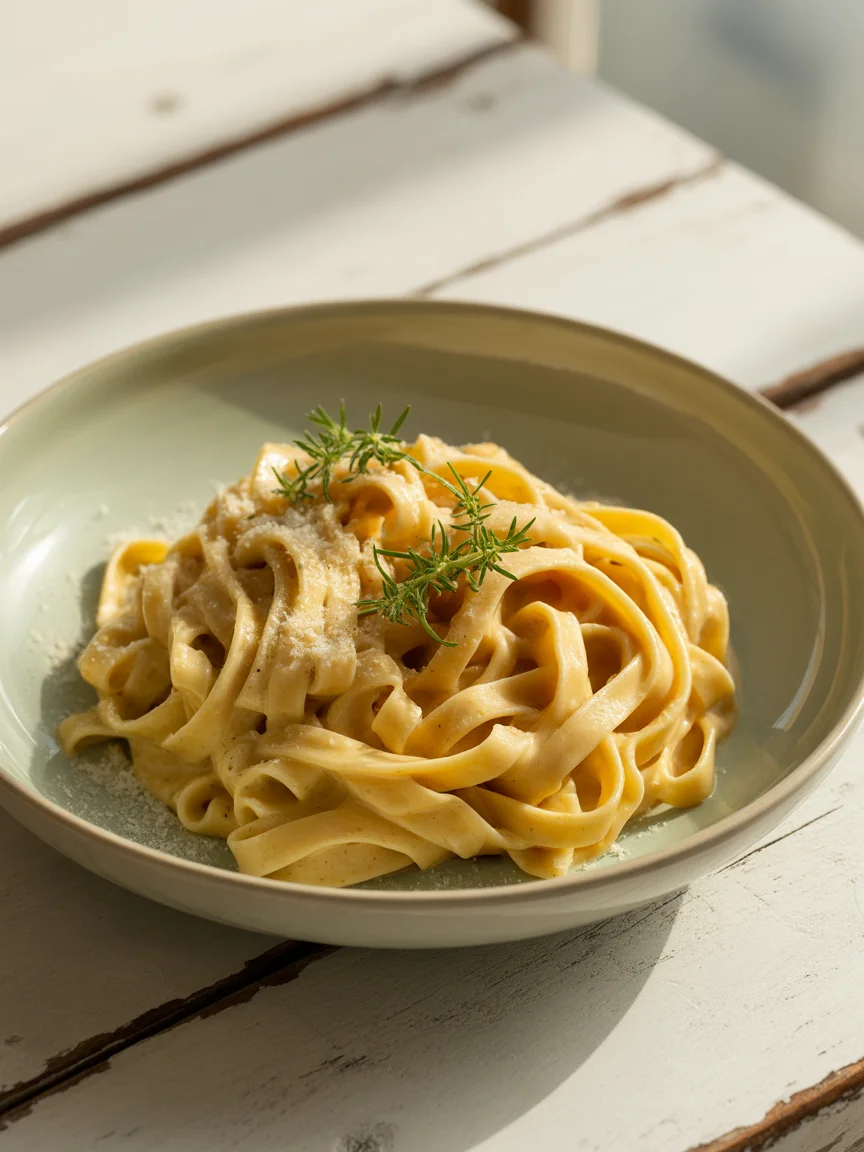
How to Make Fettuccine Alfredo
Let’s get this out there: fettuccine alfredo is what I call “simple complicated.” That means, the ingredients list is short, but you gotta nail the details. I’ve messed up the sauce more than once (it broke and looked like scrambled eggs—don’t be me).
Start with a big pot of salted water (think ocean-salty) and cook the fettuccine till it’s that perfect spot between chewy and soft. In a deep skillet, melt a generous hunk of butter on low heat. Add some heavy cream (not milk—trust me, lighter is not always better here). Keep things moving so nothing scorches.
Once it’s warmed, stir in freshly grated parmesan little by little, letting it melt before adding more. Please don’t use the green can stuff. Watch as the sauce turns super velvety and smooth. Drag those drained pasta ribbons into the pan, coating every inch. That’s it, basically. If you made it to this part and everything looks lush—give yourself a high five.
Someone once told me a splash of pasta water brings the whole sauce together. It does. It’s like magic glue.
“I was blown away by how easy it was. Never realized real fettuccine alfredo could be done this quick, or taste so restaurant-level at home.” – Jamie, loyal carb-lover
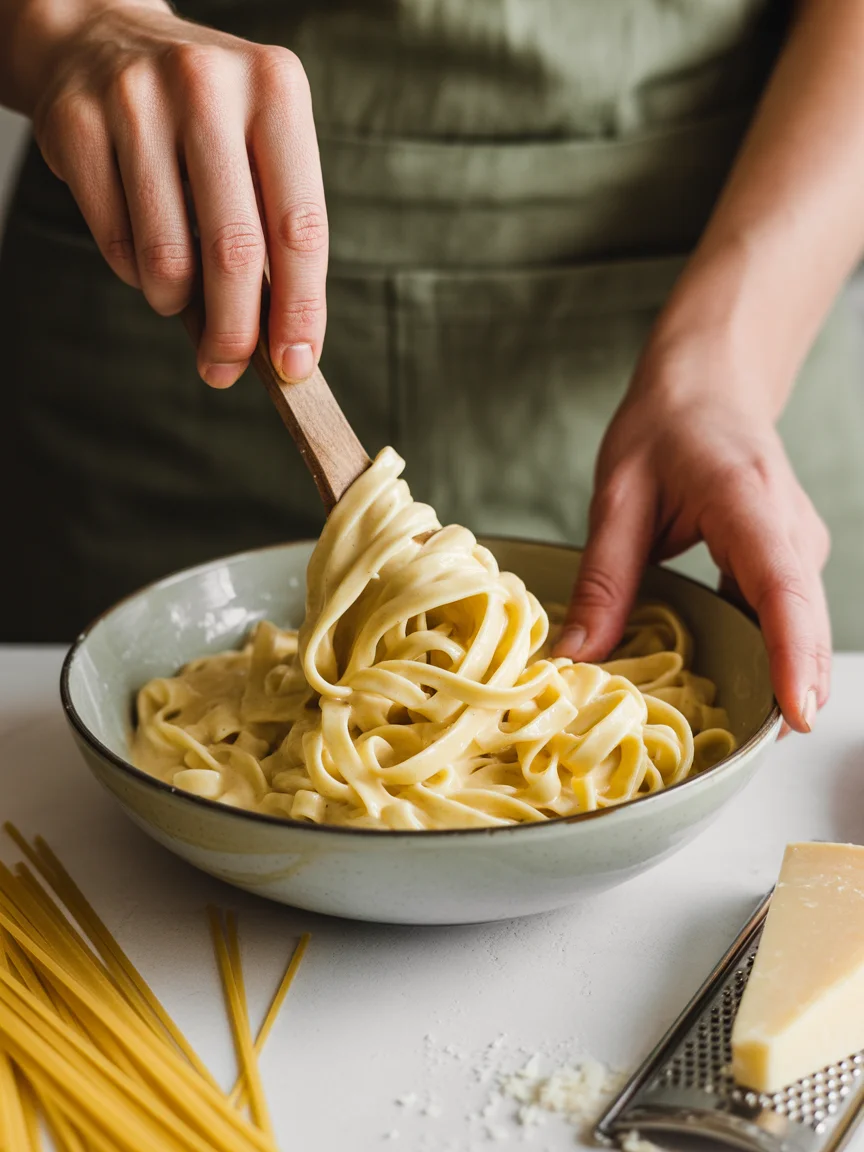
What to Serve With Fettuccine Alfredo
Here’s where things get fun—what you put next to your fettuccine alfredo can make dinner feel like a five-star treat, or just a cozy Thursday in. My go-tos, depending on what’s rattling in my fridge:
- Garlicky broccoli or roasted asparagus—something green for balance.
- Crusty Italian bread—to mop up every last drop of sauce. (You’d be wild not to.)
- Simple mixed salad—maybe with some tangy vinaigrette for zing.
- Lemon-grilled chicken—if you want more protein, toss it on top, and call it a meal.
Serve it up with a sharp, cold lemonade, or a glass of whatever “house wine” you’ve got chilling. Everything feels fancier that way.
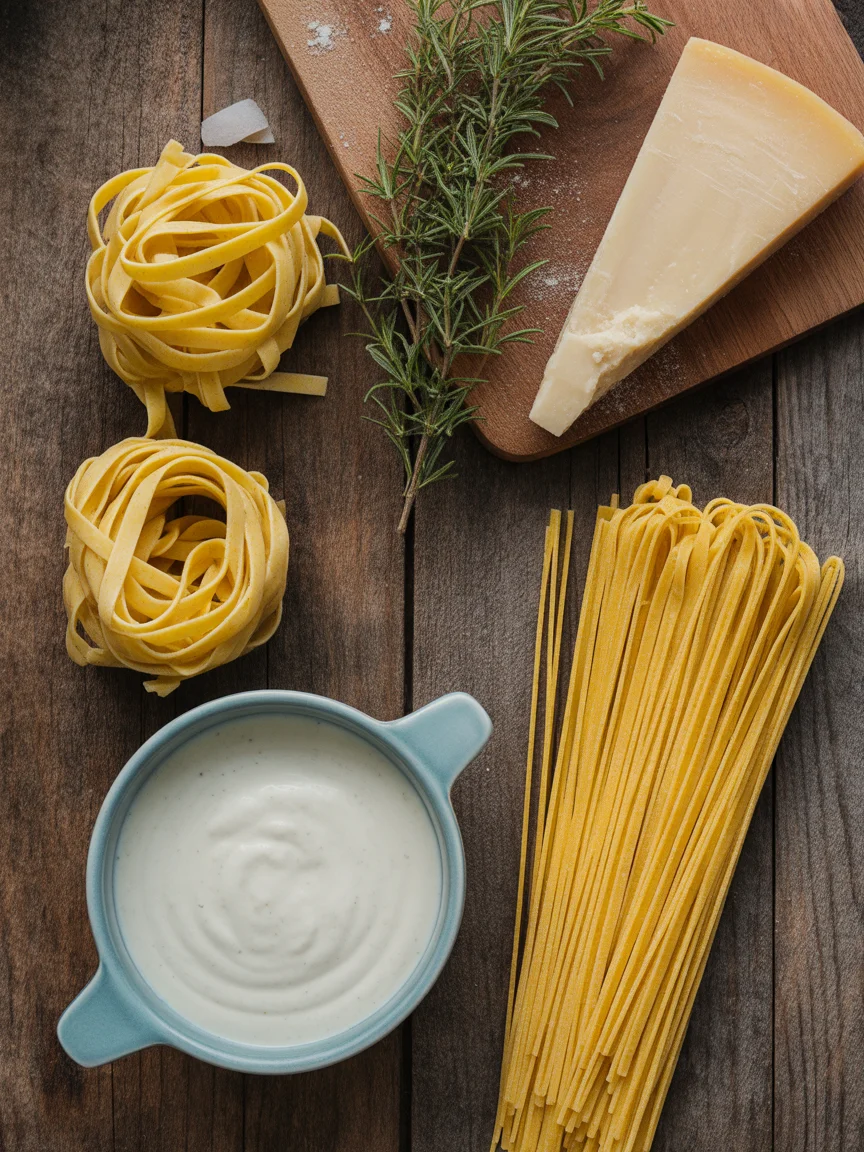
How to Store Fettuccine Alfredo
You made too much? Same. It’s almost a tradition. Storage is easy, but there’s a trick: always cool it a bit first before tucking it away in a sealed container. Stick it in the fridge, and you’re good for up to three days. I do not recommend freezing—cream sauces just get sad and weird.
Reheating is all about patience. Warm it gently on the stove with a splash more milk or cream (gotta bring that sauce back to life). Microwave in a pinch, but use low power, and stir it up halfway through. Nobody likes gloppy pasta. Honestly, it’s never “day one” good, but hey—it’ll do in a lunchbox.
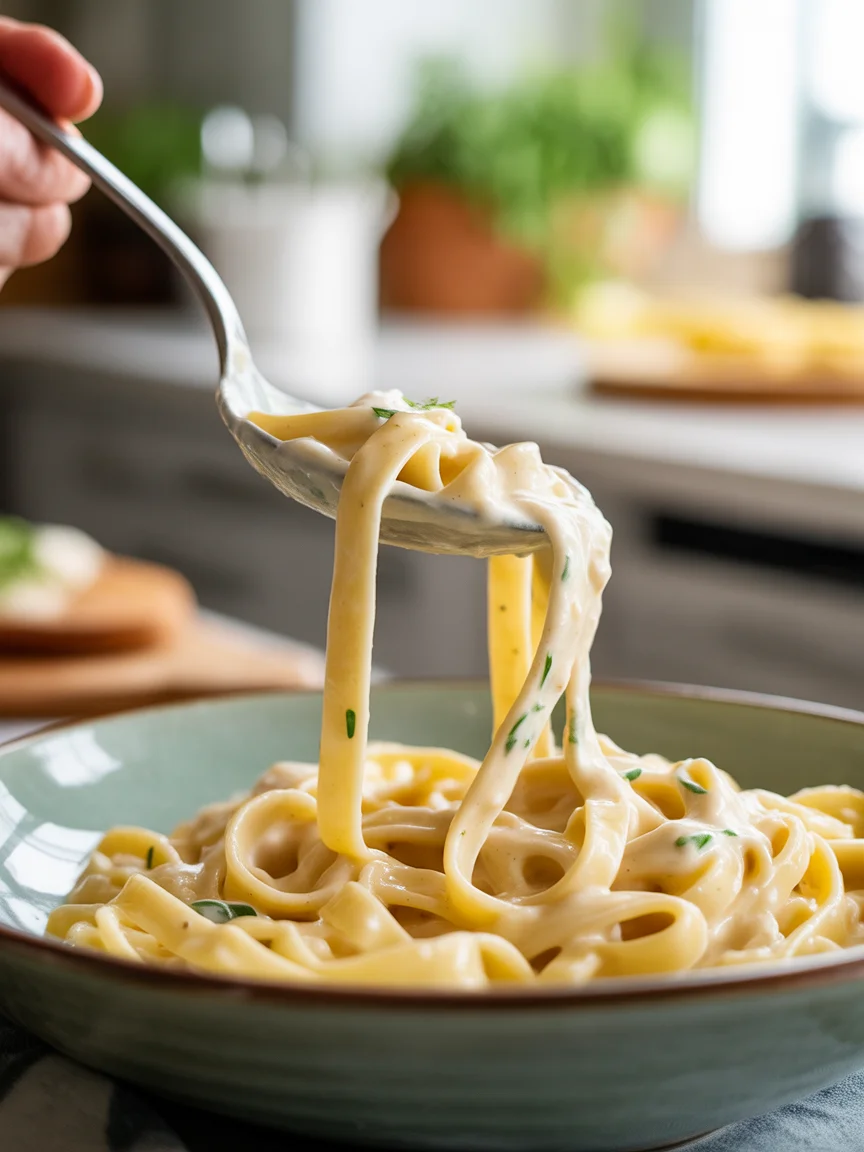
Tips for Making Perfect Fettuccine Alfredo
Alright, listen up. I have burned my sauce, made it too thick, too thin, and one time—so bland even my dog was unimpressed. So here’s how to dodge those mistakes.
Start with room-temp butter, and don’t rush it. Let the cream simmer gently, or you’ll have a kitchen disaster. Freshly grated parmesan is your friend. Not pre-shredded—too much weird powder, and it doesn’t melt right.
Don’t drown the pasta. Enough sauce to coat, not swamp. Season last, after the cheese—otherwise it’s hard to balance the saltiness. And if your sauce looks too tight, a splash of starchy pasta water saves the day.
Extra from me: don’t try to make it diet. This is not the occasion.
Nutrition Facts (per serving)
If you’re curious (or counting), here’s a rundown for a typical bowl of fettuccine alfredo. Each portion is roughly 1 1/2 cups, give or take. Expect about 650-700 calories, depending on how wild you go with the cheese and cream.
On the plus side, it’s got a decent hit of protein (around 18 grams), plenty of fats (those make it creamy), and well, lots of carbs—hello, comfort! It’s not a “light” meal, but sometimes your soul needs pasta, not a salad. Fiber? Not so much, unless you add those green veggies on the side.
Common Questions
Can I use milk instead of heavy cream?
You can, but the sauce won’t be as rich or silky. Go half-and-half if you wanna lighten it a smidge.
How do I keep my sauce from being clumpy?
Go slow with the cheese, and keep stirring. If it gets weird, add a little more hot pasta water and whisk like your life depends on it.
Any gluten-free tips?
Easy—just swap in gluten-free pasta. The sauce itself has no gluten at all.
Can I add chicken or shrimp?
Oh, absolutely. Grill ’em up and toss ‘em on top. Some folks even like bacon or prosciutto for a twist.
Why does my leftover pasta dry out?
It just happens—cream sauce thickens as it sits. Little milk or cream and reheat gently, that usually fixes things.
Pasta Nights: Worth Every Bite
See? Fettuccine alfredo doesn’t have to be intimidating at all. Just buttery, creamy, and totally soul-satisfying. Grab some real parmesan, splash in that cream, and you’re halfway there. If you’re still nervous, check out the To Die For Fettuccine Alfredo Recipe for a twist, or Fettuccine Alfredo – Modern Honey for extra tips. Pull up your chair, serve it hot, and you’ll see just how magical pasta night can get. Try it soon, seriously—you’ll be proud, and probably get asked for the recipe every time.
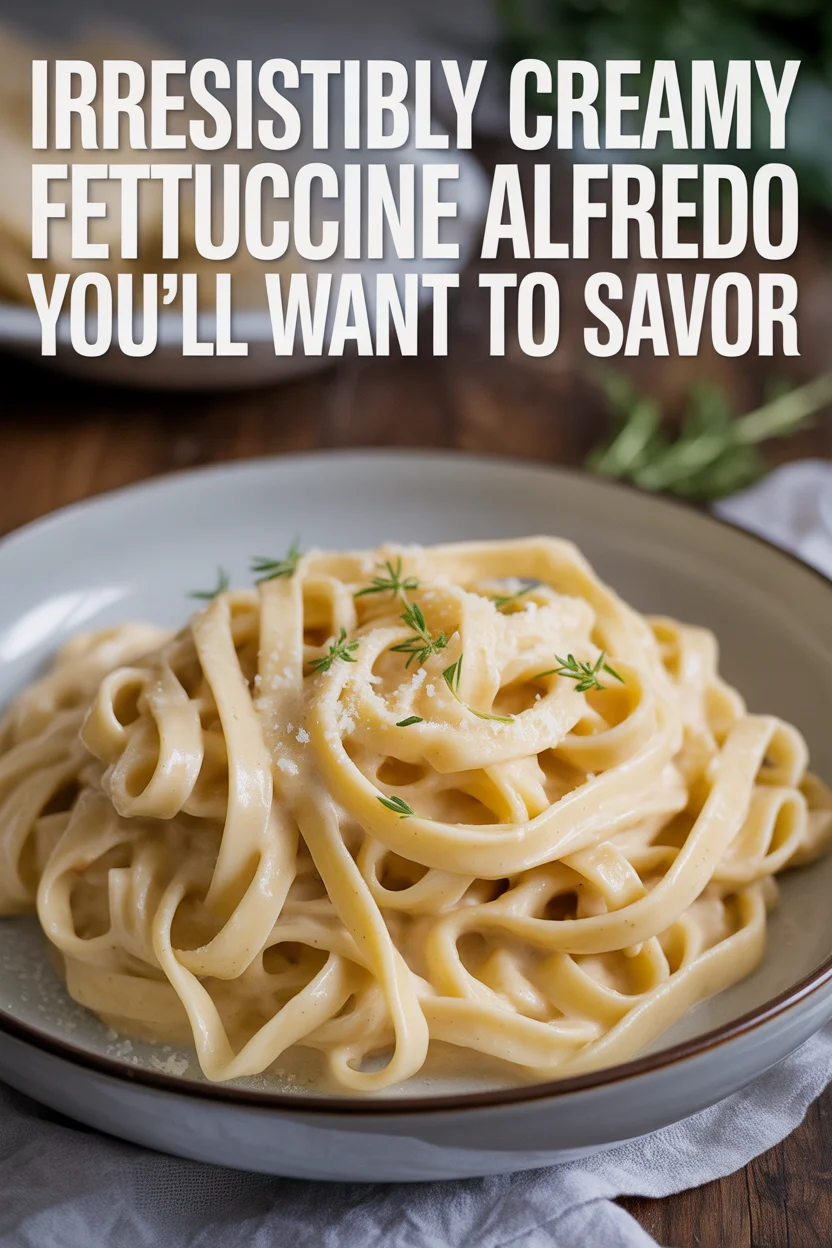

Fettuccine Alfredo
Ingredients
Method
- Bring a large pot of salted water to a boil and cook the fettuccine until al dente.
- In a deep skillet, melt the butter on low heat.
- Add the heavy cream to the skillet and warm it up, stirring to prevent scorching.
- Gradually stir in the freshly grated parmesan cheese until melted and smooth.
- Once the pasta is cooked, drain it and add it to the sauce, tossing to coat every inch.
- For extra creaminess, add a splash of pasta water if needed.


1 Comment
Pingback: Shrimp Scampi Pasta That Tastes Better Than Takeout